Welcome to the Pacifica Center for Philosophy + Theology
Bringing Together
What is Being Torn Apart.
About the Center
Essential questions at the intersection of philosophy and theology.
Our world has become disenchanted. Hundreds of years of intellectual, cultural, political, and economic revolutions—only accelerating in the past century—have evacuated our world of transcendence. We have become increasingly atomized and polarized: our basic human-to-human interaction is less frequent, our experience of political life is fragmented and chaotic, our relationship to our work is one of alienation, and the safety and support of family and communal life is notably absent. With the emergence of the internet and bio-technology, even our relationship to our own bodies and nature herself is tenuous.
If everything is seemingly being torn apart, how can we bring it back together? The Pacifica Center for Philosophy + Theology aims to begin that process of reintegration by first reuniting philosophy and theology—the search for wisdom and the search for God are one and the same. It challenges those who participate in its offerings to wrestle with this long intellectual history for themselves, not with the aim of indoctrination, but rather with the hope that in doing so we will better understand where we stand in history and where we might go from here. And it begins with understanding theophany.
Learn More About Theophany ›
Watch to learn more about our program:

Why This Curriculum Matters
Through a mixture of modern technology and ancient pedagogy, we aim to make accessible to a wide audience the riches and rigor of a long-standing intellectual tradition. Through careful examination of ‘first principles’ and engagement with primary texts, students will wrestle with the fundamental question of what it means to be truly human.
Education is in crisis. Whether in primary, secondary or higher education, we are driven by concerns that are fundamentally utilitarian: wealth, establishment of reputation, fixation on careers, and a total commitment to pleasure. And yet, the most affluent nations are miserable and in disarray. In education’s orientation toward comfort and consumption, we have forgotten the key elements to human flourishing: how to ask ultimate questions about reality and our place in it. The result is we have been left in a permanent existential crisis.
To address this crisis, our curriculum aims for a more holistic approach. From asking about the relevance of sacred texts such as the Old and New Testament, wrestling with questions about ethics and morality, reflecting on the tensions between justice and equality, and to weighing the strengths and weaknesses for the existence of God among ancient and modern thinkers, we aim to expose people of all backgrounds to a conversation millennia in the making. This curriculum matters because it puts philosophy—the search for wisdom—back into the center of education and into the hands of anyone who desires to partake of it.
How it Works
Going Beyond Current Instructional Boundaries is Important for Thinking and Living Well.
Finding the right guide can be difficult, so we have tried to do some of the work for you: lecturers with expertise and passion for teaching; beautiful environments, visuals, and the right educational materials as a means of support; the convenience and flexibility of videos alongside the warmth of an in-person instructor. At fifteen lectures per course and roughly thirty minutes per lecture, students will receive a substantial introduction without the risk of feeling overwhelmed. After all, this is only the beginning of the journey.
- Immersive, High Quality Video Courses
- Accomplished and Engaging Lecturers + Faculty
- Oxford-style Format and Small Classrooms
“Are you not ashamed of your eagerness to possess as much wealth, reputation and honors as possible, while you do not care for nor give thought to wisdom or truth, or the best possible state of your soul?”
– Socrates (Plato, Apology 29D-30B)
Thinking and Living Well
Our Courses
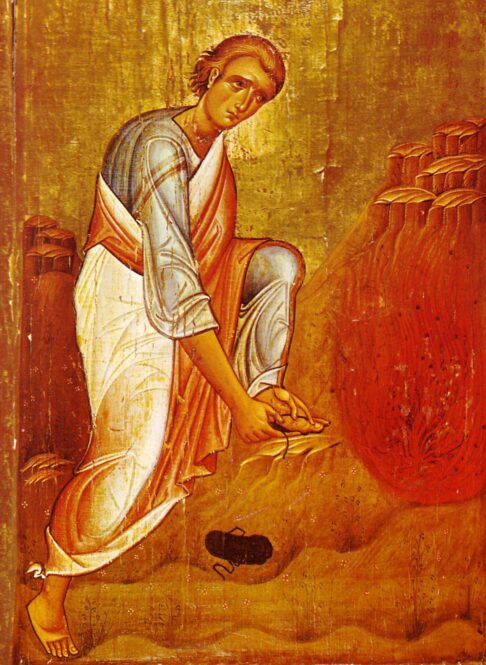
Old Testament
What is the meaning of life? Why do the innocent suffer? What does it mean to love? Where did we come from? How do we navigate living in a broken world? What is God’s relationship with humanity? We find answers to these questions in the ancient Hebrew scriptures.
(Available Spring 2023)
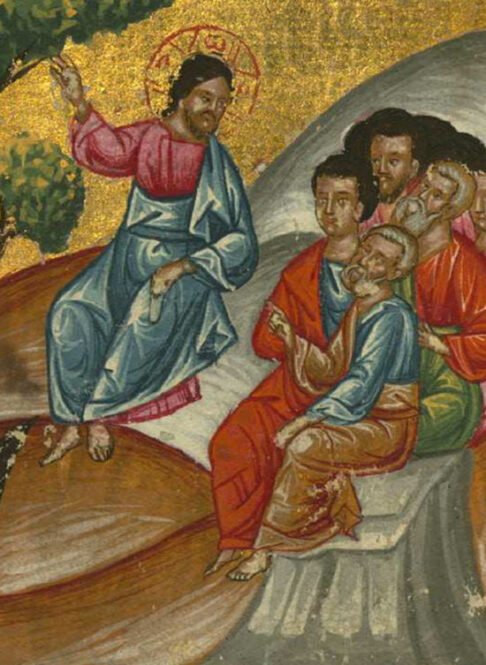
New Testament
What do the teachings and death of a first century peasant have to do with big questions about human nature, or truth, or the meaning of life? Students will attempt to find answers to these questions by exploring the life of Christ as portrayed in the Gospels with supplemental readings from C.S. Lewis.
(Available Spring 2023)
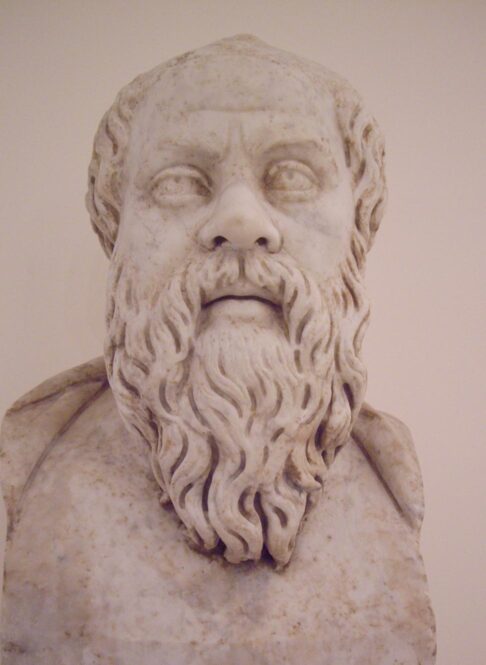
Moral Philosophy
Is morality relative? What is the content of a moral life? What does it mean to be happy? Do we have any duties or obligations? We examine major thinkers like John Stuart Mill, Immanuel Kant, and Aristotle to discern what it means to live a good life.
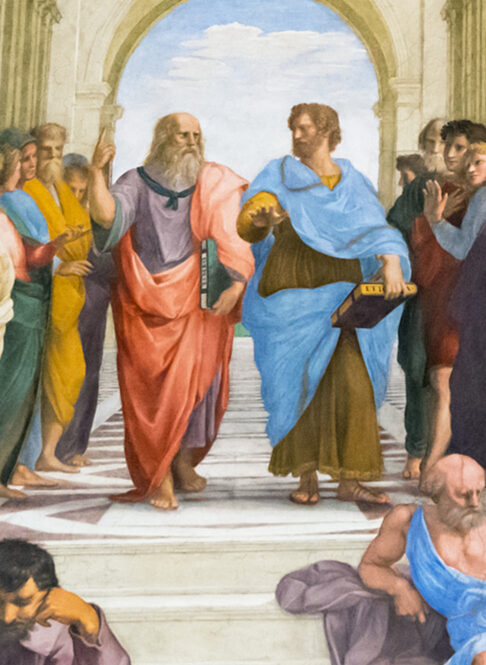
Ancient Philosophy
What is the meaning of existence? Is the soul immortal? Are there immaterial realities? What does it mean to speak of ‘nature’? What is beauty, and what counts as beautiful? What does it mean to be a ‘self’? We turn to the ancient giants of Plato, Aristotle, Cicero and Plotinus for answers.
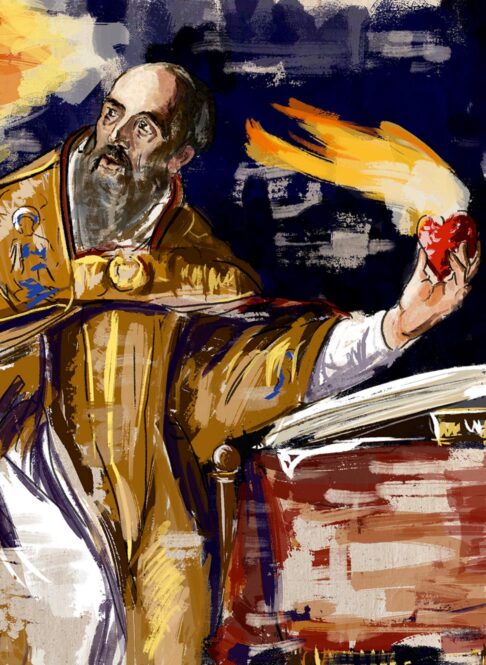
Late-Antique Philosophy
What is the relationship between faith and reason? Does God exist? How could God exist with so much evil in the world? What does it mean to be free? What is time? What does it mean to read a text ‘literally’? Find out through a close reading of Augustine’s Confessions.

Political Philosophy
What is human nature? How does human nature contribute to the origin and aim of society? What is the ideal state of society? What is the nature of justice, and its relationship to values like equality? We look at the history of political thought from Plato to the French Revolution in order to better understand the present.
(Available Spring 2023)
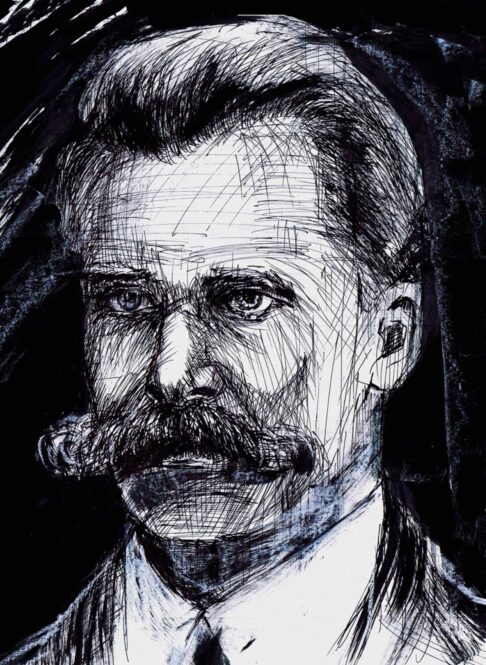
Modern Philosophy
Do words and ideas accurately reflect reality? Is the universe best thought of as a machine? Is free will an illusion? Does empirical science reveal religion as superstition? Can we be moral without God? We examine the Enlightenment and beyond, from Descartes to Nietzsche, to understand the great experiment of modernity.
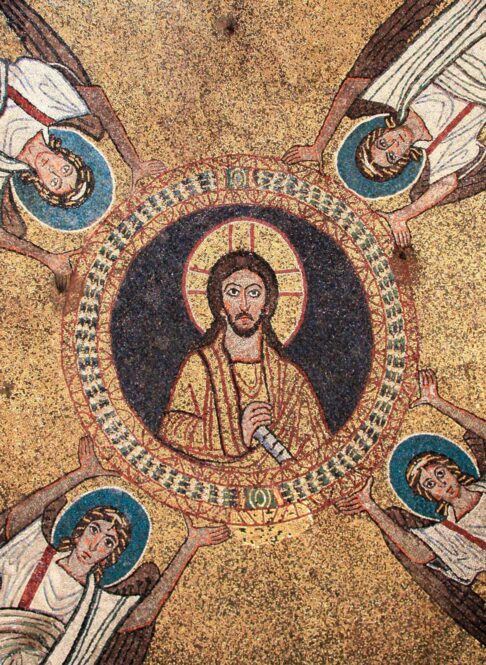
Patristic Theology
What did the earliest Christians believe? Is Jesus Christ a noble prophet, a divine creature, or God himself? If he is God, does he only appear human? If he is human, then how can he be God? What texts are to count as scripture, and what does it mean for them to be authoritative? Are there wrong answers to these questions? We look to the first thousand years of Christian thought for a fresh perspective.
The Pacifica Center for Philosophy + Theology
Our Distinctives
First, learning requires leisure so that one may reflect. Second, reflection takes shape in small communities. Third, it is refined as we learn to listen and be hospitable to the thoughts of others. Finally, it is sharpened through charitable opposition as we hunt for the best argument. These distinctives are at the heart of all we do. This is true education.

Leisure in Learning
Leisure (Greek: skole; Latin: otium) is the condition for a proper education. It is to be distinguished from the normal work of business (negotium). In our culture there is no time to think and reflect, but only to work. The leisure in learning model provides time and space for students to think deeply about a few crucial things rather than getting lost in many things. Students are held accountable for higher-level thinking, in-depth analysis, and clear articulation of thoughts both in writing and speaking in conversation with some of the greatest minds and texts in history.

Oxford-Style Teaching
Learning is done together in community. The Oxford-Style of teaching is based around conversations between an expert teacher who engages a small group of students. It provides personalized attention and feedback, and students need to be ready to present and defend their opinions. Such regular and rigorous academic discussion develops and facilitates learning in a way that is not possible through lectures alone

Intellectual Hospitality
Students who are intellectually hospitable bring respect and humility to the work, subject, or claim before them. They seek to engage with the material on its own merit, even if they disagree. Rather than attack, they seek to understand; rather than dismiss, they engage; rather than perform, they seek to listen. Students immerse themselves in the material, allowing it to have an effect and impact on their thoughts before jumping to their final evaluation and analysis. Following Aristotle, students learn to entertain a thought without necessarily accepting it.

Creative Opposition
In order to receive positive and constructive criticism from others, as well as provide that same criticism in love and humility, we must be committed to seeking the truth above all else. By offering positive critique and counter points to topics under discussion, students learn to take intellectual risks, play devil’s advocate, see things from a variety of points of view, all in order to follow the advice of Socrates, who exhorts us to only trust the argument that seems best. Creative opposition is the pursuit of excellence and the hunt for the truth.